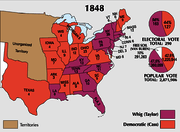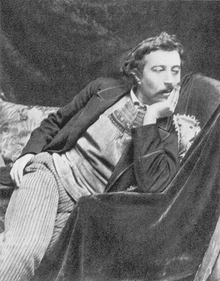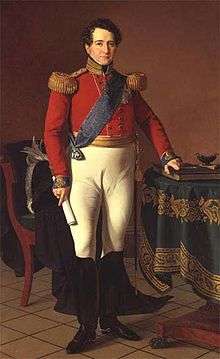1848
| Millennium: | 2nd millennium |
|---|---|
| Centuries: | 18th century · 19th century · 20th century |
| Decades: | 1810s · 1820s · 1830s · 1840s · 1850s · 1860s · 1870s |
| Years: | 1845 · 1846 · 1847 · 1848 · 1849 · 1850 · 1851 |
| 1848 in topic: |
| Humanities |
| Archaeology – Architecture – Art – Literature – Music |
| By country |
| Australia – Brazil - Canada – Denmark - France – Germany – Mexico – Norway - Philippines - Portugal– Russia - South Africa – Spain - Sweden - United Kingdom – United States |
| Other topics |
| Rail Transport – Science – Sports |
| Lists of leaders |
| Colonial Governors – State leaders |
| Birth and death categories |
| Births – Deaths |
| Establishments and disestablishments categories |
| Establishments – Disestablishments |
| Works category |
| Works |
| Gregorian calendar | 1848 MDCCCXLVIII |
| Ab urbe condita | 2601 |
| Armenian calendar | 1297 ԹՎ ՌՄՂԷ |
| Assyrian calendar | 6598 |
| Bahá'í calendar | 4–5 |
| Bengali calendar | 1255 |
| Berber calendar | 2798 |
| British Regnal year | 11 Vict. 1 – 12 Vict. 1 |
| Buddhist calendar | 2392 |
| Burmese calendar | 1210 |
| Byzantine calendar | 7356–7357 |
| Chinese calendar | 丁未年 (Fire Goat) 4544 or 4484 — to — 戊申年 (Earth Monkey) 4545 or 4485 |
| Coptic calendar | 1564–1565 |
| Discordian calendar | 3014 |
| Ethiopian calendar | 1840–1841 |
| Hebrew calendar | 5608–5609 |
| Hindu calendars | |
| - Vikram Samvat | 1904–1905 |
| - Shaka Samvat | 1769–1770 |
| - Kali Yuga | 4948–4949 |
| Holocene calendar | 11848 |
| Igbo calendar | 848–849 |
| Iranian calendar | 1226–1227 |
| Islamic calendar | 1264–1265 |
| Japanese calendar | Kōka 5 / Kaei 1 (嘉永元年) |
| Javanese calendar | 1775–1777 |
| Julian calendar | Gregorian minus 12 days |
| Korean calendar | 4181 |
| Minguo calendar | 64 before ROC 民前64年 |
| Nanakshahi calendar | 380 |
| Thai solar calendar | 2390–2391 |
| Wikimedia Commons has media related to 1848. |
1848 (MDCCCXLVIII) was a leap year starting on Saturday (dominical letter BA) of the Gregorian calendar and a leap year starting on Thursday (dominical letter DC) of the Julian calendar, the 1848th year of the Common Era (CE) and Anno Domini (AD) designations, the 848th year of the 2nd millennium, the 48th year of the 19th century, and the 9th year of the 1840s decade. As of the start of 1848, the Gregorian calendar was 12 days ahead of the Julian calendar, which remained in localized use until 1918. It is historically famous for the wave of revolutions, a series of widespread struggles for more liberal governments, which broke out from Brazil to Hungary; although most failed in their immediate aims, they significantly altered the political and philosophical landscape and had major ramifications throughout the rest of the century.
Events
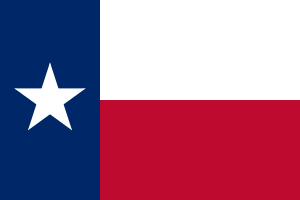


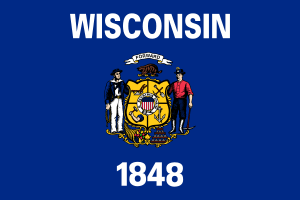
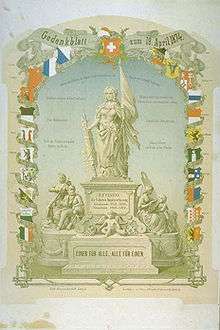
January–March
- January 3 – Joseph Jenkins Roberts is sworn in as the first president of the independent African Republic of Liberia.
- January 12 – The Palermo rising erupts in Sicily, against the Bourbon Kingdom of the Two Sicilies.
- January 24 – California Gold Rush: James W. Marshall finds gold at Sutter's Mill, in Coloma, California.
- January 31
- Construction of the Washington Monument begins in Washington, D.C.
- John C. Frémont is court-martialed on grounds of mutiny and disobeying orders. The verdict is set aside by United States President James K. Polk, but Frémont retires to California Territory.
- February 2
- Mexican–American War formally ends with signing of the Treaty of Guadalupe Hidalgo, ceding virtually all of what becomes the Southwestern United States to the U.S. The unincorporated California Territory becomes a provisional official possession; it is never organized by the United States Congress as a territory, but directly passes the requirements for statehood in 1850.
- John Henry Newman founds the first Oratory in the English-speaking world when he establishes the Birmingham Oratory at 'Maryvale', Old Oscott, England.
- February 21 – Karl Marx and Friedrich Engels publish The Communist Manifesto (Manifest der Kommunistischen Partei) in London.
- February 23 – François Guizot, Prime Minister of France, resigns. 52 people from the Paris mob are killed by soldiers guarding public buildings.
- February 24 – Louis Philippe I, King of the French, abdicates in favour of his grandson, Prince Philippe, Count of Paris, and flees to England after days of revolution in Paris. The French Second Republic is later proclaimed by Alphonse de Lamartine in the name of the provisional government elected by the Chamber under the pressure of the mob.
- March 2 – The March Disturbances in Sweden.
- March 11 – Louis-Hippolyte Lafontaine and Robert Baldwin became the first Joint Premiers of the Province of Canada to be democratically elected under a system of responsible government.
- March 13 – Prince Klemens von Metternich gives up office as State Chancellor and Foreign Minister of the Austrian Empire.
- March 15 – Start of the Hungarian Revolution of 1848. The Hungarian young revolutionary intellectuals led by Sándor Petőfi, Mór Jókai, etc., called the Márciusi Ifjak (Young men of March) organized peaceful mass demonstrations in Pest, forcing the city's Habsburg authorities to accept the 12 points: the claims of the Hungarians for freedom and self-determination within the Habsburg Empire. On the same day Lajos Kossuth and representatives of the Diet of Hungary went to Vienna and forced the emperor and Hungarian king Ferdinand I of Austria to accept Hungarian claims for self-determination within the empire.
- March 18 – In Berlin barricade fighting between revolutionaries and royalist forces marks the culmination of the German revolutions of 1848–49. Hundreds are killed in the clashes but king Frederick William IV of Prussia is forced to honour the dead and appoint a liberal government.
- March 22 – Republic of San Marco comes into existence in Venice.
- March 23 – Founding of the New Zealand city of Dunedin, with the arrival of settlers from Scotland on board the John Wickliffe.
- March 24 – Start of the First Schleswig War (German: Schleswig-Holsteinischer Krieg or Three Years' War (Danish: Treårskrigen)) a military conflict in southern Denmark and northern Germany rooted in the Schleswig-Holstein Question, contesting the issue of who should control the Duchies of Schleswig and Holstein.
April–June
- April 10
- A Chartist 'Monster Rally' is held in Kennington Park London, headed by Feargus O'Connor. A petition demanding the franchise is presented to the Parliament of the United Kingdom.
- The Illinois and Michigan Canal is completed.
- April 11 – The first Hungarian national government is formed, under the leadership of Lajos Batthyány. The April Laws, the first democratic revolutionary laws in Hungary are promulgated. These laws are the first modern laws in Hungary, which put an end to the feodal privileges of the nobility and to the serfdom, proclaim the freedom of religion, the freedom of the press, the foundation of the Hungarian National Bank, organises the first democratic election in Hungary based in popular representation, national guard, reunion of Transylvania with Hungary, etc. The Habsburg emperor, and Hungarian king Ferdinand I of Austria, ratifies these laws, which form the base of modern Hungary.
- April 18 – Second Anglo-Sikh War breaks out in the Punjab.
- April 29 – Pope Pius IX publishes an allocution announcing his refusal to support Piedmont-Sardinia in its war with Austria and dispelling hopes that he might serve as ruler of a pan-Italian republic. The allocution, by which Pius is seen to withdraw his moral support for the Italian unification movement, is a key first step in the soon-to-be crushing reaction against the revolutions of 1848.
- May 15
- Radicals invade the French Chamber of Deputies.
- 40,000 Romanians meet at Blaj to protest Transylvania becoming a part of Hungary.[1]
- May 18 – The first German National Assembly (Nationalversammlung) opens in Frankfurt, Germany.
- May 19 – The Treaty of Guadalupe Hidalgo, ending the Mexican–American War, is ratified by the Mexican government (cf. February 2, above).
- May 29 – Wisconsin is admitted as the 30th U.S. state.
- June – The Serbians from Vojvodina start a rebellion against the Hungarian government.
- June 2–12 – Prague Slavic Congress brings together members of the Pan-Slavism movement.
- June 17 – The Austrian army bombards Prague and crushes a working class revolt.
- June 21 – Wallachian Revolution of 1848: The Proclamation of Islaz is made public and a Romanian revolutionary government led by Ion Heliade Rădulescu and Christian Tell is created.
- June 22 – The French government dissolves the national workshops in Paris, giving the workers the choice of joining the army or going to workshops in the provinces. The following day was the start of the June Days Uprising in response.
July–September
- July – The Public Health Act establishes Boards of Health across England and Wales, the nation's first public health law, giving cities broad authority to build modern sanitary systems.[2]
- July 5 – The Hungarian national revolutionary parliament starts to work.
- July 19 – Women's rights – Seneca Falls Convention: The 2-day Women's Rights Convention opens in Seneca Falls, New York and the "Bloomers" are introduced at the feminist convention.
- July 26 – Matale Rebellion against British rule in Sri Lanka.
- July 29 – Young Irelander Rebellion: a nationalist revolt in County Tipperary against British rule is put down by the Irish Constabulary.[2]
- August 6 – HMS Daedalus report a sighting of a sea serpent.
- August 14 – American President James K. Polk annexes the Oregon Country and renames it the Oregon Territory as part of the United States.
- August 17 – Yucatán officially unites with Mexico.
- August 19 – California Gold Rush: The New York Herald breaks the news to the East Coast of the United States that there is a gold rush in California (although the rush started in January).
- August 24 – The U.S. barque Ocean Monarch is burnt out off the Great Orme, North Wales, with the loss of 178, chiefly emigrants.
- August 28 – Mathieu Luis becomes the first black member to join the French Parliament as a representative of Guadeloupe.
- September 11 – The Croatian army of Josip Jelačić, encouraged in secret by the Habsburg government, crosses the Drava river and attacks Hungary, with the goal of ending the revolution in Hungary.
- September 12 – One of the successes of the Revolutions of 1848, the Swiss Federal Constitution, patterned on the US Constitution, enters into force, creating a federal republic and one of the first modern democratic states in Europe.
- September 13 – Vermont railroad worker Phineas Gage survives a 3-foot-plus iron rod being driven through his head.
- September 16 – William Cranch Bond and William Lassell discover Hyperion, Saturn's moon.
- September 25 – The Hungarian king and Habsburg emperor Ferdinand V refuses to recognise the Hungarian government led by Lajos Batthyány. The Batthyány government resigns and the National Defence Committee is formed, which is a temporary crisis government, totally independent from Vienna, under the leadership of Lajos Kossuth.
- September 29 – The Hungarian revolutionary army, led by János Móga defeats at Pákozd the Croatian army of Josip Jelačić, forcing him to retreat towards Vienna.
October–December
- October – Publication (anonymously) in London of Elizabeth Gaskell's first novel, Mary Barton: A Tale of Manchester Life.
- October 2 – The National Defence Committee (Országos Honvédelmi Bizottmány) led by Lajos Kossuth becomes the executive power in Hungary after the resignation of the Lajos Batthyány government.
- October 3 – General Antal Puchner, the commander of the Austrian armies of Transylvania, declares insurrection against Hungary, and, together with the Romanian insurgents led by Avram Iancu, attacks and chases away the Hungarian armed forces occupying Transylvania. During these events (mostly in October–January 1848 – 1849, but also between May–July 1849) 7500-8500 of Hungarian civilians (men, women, and children) were massacred by the Romanian insurgents.[3]
- October 24 – Romanian bands massacre 640 Hungarian civilians at the town of Zlatna in Transylvania.[4]
- October 28 – In Catalonia, Spain, the Barcelona–Mataró railroad route (the first to be constructed in the Iberian Peninsula) is inaugurated.
- October 30 – Battle of Schwechat: Hungarian forces which crossed the Austrian border in order to unite with the Viennese revolutionaries are defeated by the imperial army led by Alfred I, Prince of Windisch-Grätz and Josip Jelačić.
- October 31 – Vienna is occupied by the imperial forces led by Alfred I, Prince of Windisch-Grätz, who crushes the revolution here.
- November 1 – In Boston, Massachusetts, the first medical school for women, The Boston Female Medical School (which later merges with Boston University School of Medicine), opens.
- November 3 – A new Constitution of the Netherlands (drafted by Johan Rudolph Thorbecke), severely limiting the power of the monarchy and introducing representative democracy, is proclaimed.
- November 4 – France ratifies a new constitution. The Second Republic of France is set up, ending the state of temporary government lasting since the Revolution of 1848.
- November 7 – United States presidential election, 1848: Whig Zachary Taylor of Louisiana defeats Democrat Lewis Cass of Michigan in the first U.S. presidential election held in every state on the same day.
- December 2 – Emperor Ferdinand I of Austria abdicates in favor of his nephew, Franz Joseph, who will serve as Emperor of Austria and King of Hungary and Bohemia until his death in 1916.
- December 6 – The Austrian imperial army led by Franz Schlik attacks Hungary.
- December 10 – Prince Louis-Napoléon Bonaparte is elected first president of the French Second Republic.
- December 16 – The main Austrian imperial forces, led by Alfred I, Prince of Windisch-Grätz, cross the Hungarian border.
- December 18 – Punta Arenas, the first major settlement in the Strait of Magellan, is founded.
- December 20 – President Napoleon III takes his oath of office in front of the French National Assembly.
- December 25 – The Hungarian forces led by Józef Bem enter Kolozsvár (Cluj) after defeating the Austrian armies in northern Transylvania.
- December 20 – Slavery is abolished in Réunion. This day is celebrated every year since 1981.
- December 30 – The imperial army led by Josip Jelačić defeats the Hungarian army led by Mór Perczel in the Battle of Mór.
Date unknown
- The Independent Republic of Yucatán joins Mexico in exchange for Mexican help in suppressing a revolt by the indigenous Maya population.
- British, Dutch, and German governments lay claim to New Guinea.
- Admiral Nevelskoy demonstrates that the Strait of Tartary is a strait.
- Dunedin, New Zealand, is founded by Scots settlers.
- A cholera epidemic in New York kills 5,000.
- The University of Ottawa is founded.
- The University of Mississippi is founded.
- The University of Wisconsin–Madison is founded.
- Geneva College in Pennsylvania is founded.
- Queen's College, London, for women, is founded.
- Rhodes College is founded.
- The Boston Public Library is founded by an act of the Great and General Court of Massachusetts.
- John Sumner becomes archbishop of Canterbury.
- The Shaker song "Simple Gifts" is written by Joseph Brackett in Alfred, Maine.
- Richard Wagner begins writing the libretto that will become Der Ring des Nibelungen ("The Ring of the Nibelung").
Ongoing events
- Great Famine (Ireland) (1845–49)
Births
January–June
- January 6 – Hristo Botev, Bulgarian revolutionary (d. 1876)
- January 19 – John F. Stairs, Canadian businessman and statesman (d. 1904)
- January 21
- Eliza Moore, last American to have been a slave (d. 1948)
- Henri Duparc, French composer (d. 1933)
- January 24 – Vasily Surikov Russian painter (d. 1916)
- January 27 – Tōgō Heihachirō, Japanese admiral (d. 1934)
- February 5
- Belle Starr, American outlaw (d. 1889)
- Joris-Karl Huysmans, French author (d. 1907)
- February 14 – Benjamin Baillaud, French astronomer (d. 1934)
- February 16
- Octave Mirbeau, French art critic and novelist (d. 1917)
- Hugo de Vries, Dutch botanist and geneticist (d. 1935)
- February 18 – Louis Comfort Tiffany, American glass artist (d. 1933)
- February 24
- Andrew Inglis Clark, Tasmanian politician (d. 1907)
- Grant Allen, Canadian author (d. 1899)
- February 25 – King William II of Württemberg (d. 1921)
- February 27 – Hubert Parry, English composer (d. 1918)
- March 3 – Adelaide Neilson, English actress (d. 1880)
- March 10 – John William Brodie-Innes, British member of the Golden Dawn (d. 1923)
- March 10 – Hubertine Auclert, French women's rights activist and suffragist (d. 1914)
- March 18 – Princess Louise, Duchess of Argyll, daughter of Queen Victoria (d. 1939)
- March 19 – Wyatt Earp, American lawman and gunfighter (d. 1929)
- March 29 – Aleksey Kuropatkin, Russian general and Imperial Russian Minister of War (d. 1925)
- March 31 – Viscount William Astor, British financier and statesman (d. 1919)
- April 7 – Randall Thomas Davidson, Archbishop of Canterbury (d. 1930)
- April 10 – Hubertine Auclert, French feminist (d. 1914)
- April 27 – King Otto of Bavaria (d. 1916)
- May 10 – Thomas Lipton, Scottish businessman (d. 1931)
- May 20 – Howard Vernon, Australian actor (d. 1921)
- May 23
- Otto Lilienthal, German engineer and aviation pioneer (d. 1896)
- Helmuth von Moltke the Younger, German general (d. 1916)
- June 7 – Paul Gauguin, French artist (d. 1903)
- June 15 – Sol Smith Russell, American stage comedian, (d. 1902)
July–December
- July 3 – Lothar von Trotha, German military commander (d. 1920)
- July 6 – Gábor Baross, Hungarian statesman (d. 1892)
- July 9 – Robert I, Duke of Parma, last ruling Duke of Parma (d. 1907)
- July 15 – Vilfredo Pareto, Italian economist (d. 1923)
- July 18 – W. G. Grace, cricketer (d. 1915)
- July 22
- Adolphus Frederick V, Grand Duke of Mecklenburg-Strelitz (d. 1914)
- Winfield Scott Stratton, American miner (d. 1902)
- July 25
- Arthur Balfour, Prime Minister of the United Kingdom (d. 1930)
- George Robert Aberigh-Mackay, Anglo-Indian writer (d. 1881)
- August 19 – Gustave Caillebotte, French painter (d. 1894)
- August 24 – Kate Claxton, American actress (d. 1924)
- September 4 – Lewis Howard Latimer, African American inventor (d. 1928)
- September 8 – Viktor Meyer, German chemist (d. 1897)
- September 20 – Friedrich Soennecken, German entrepreneur and inventor of hole punch and ringbinder (d. 1919)
- September 29 – Caroline Yale, American educator (d. 1933)
- October 3 – Henry Lerolle, French painter (d. 1929)
- October 11 – James Acton, English cricketer (d. 1924)
- October 15 – Harmon Northrop Morse, American chemist (d. 1920)
- November 8 – Gottlob Frege, German logician (d. 1925)
- November 11 – Zinovy Rozhestvensky, Russian admiral (d. 1909)
- November 12 – Eduard Müller, member of the Swiss Federal Council (d. 1919)
- November 13 – Albert I, Prince of Monaco (d. 1922)
- November 15 – Edwin Bibby, English wrestler (d. 1905)
- November 20 – James M. Spangler, American inventor (d. 1915)
- November 28 – Henry Lomb, German-American optician, co-founder of Bausch & Lomb (d. 1908)
- November 29 – Paul Pau, French general (d. 1932)
- December 6 – Johann Palisa, Austrian astronomer (d. 1925)
- December 17 – William Wynn Westcott, British Freemason (d. 1925)
date unknown
- Alexander Bedward, Jamaican preacher (d. 1930)
- Max Théon, Polish Jewish occultist (d. 1927)
- Maryana Marrash, Syrian writer and salonist (d. 1919)
Deaths
January–June
- January 9 – Caroline Herschel, German astronomer (b. 1750)
- January 19 – Isaac D'Israeli, English author (b. 1766)
- January 20 – Christian VIII, King of Denmark (b. 1786)
- February 15 – Hermann von Boyen, Prussian field marshal (b. 1771)
- February 22 – Wilhelmine Reichard, first German women balloonist (b. 1788)
- February 23 – John Quincy Adams, 6th President of the United States, son of John Adams and Abigail Adams (b. 1767)
- March 29 – John Jacob Astor, American businessman (b. 1763)
- April 8 – Gaetano Donizetti, Italian composer (b. 1797)
- May 24 – Annette von Droste-Hülshoff, German writer (b. 1797)
- June 23 – Archduchess Maria Leopoldine of Austria-Este (b. 1776)
- June 27 – Denis Auguste Affre, Archbishop of Paris (b. 1793)
July–December
- July 4 – François-René de Chateaubriand, French writer and diplomat (b. 1768)
- July 10 – Karoline Jagemann, German actor (b. 1777)
- July 20 – Francis R. Shunk, American politician (b. 1788)
- August 3 – Edward Baines, British newspaperman and politician (b. 1774)
- August 7 – Jöns Jacob Berzelius, Swedish chemist (b. 1779)
- August 8 – Puran Appu, Sri Lankan hero who led the Matale rebellion against the British (b.1812)
- August 12 – George Stephenson, English locomotive pioneer (Locomotion No. 1 & Rocket) (b. 1781)
- August 30 – Simon Willard, celebrated American horologist (b. 1753)
- September 24 – Branwell Brontë, painter and poet, brother of novelists Charlotte, Emily and Anne (b. 1817)
- November 9 – Robert Blum, German politician (b. 1810)
- November 10 – Ibrahim Pasha of Egypt, military leader (b. 1789)
- November 23 – Sir John Barrow, English statesman (b. 1764)
- November 24 – William Lamb, 2nd Viscount Melbourne, Prime Minister of the United Kingdom (b. 1779)
- December 1 – Kyokutei Bakin, Japanese author (b. 1767)
- December 19 – Emily Brontë, English author (b. 1818)
References
- ↑ Stoica, Vasile (1919). The Roumanian Question: The Roumanians and their Lands. Pittsburgh: Pittsburgh Printing Company. p. 23.
- 1 2 Palmer, Alan; Veronica (1992). The Chronology of British History. London: Century Ltd. pp. 269–270. ISBN 0-7126-5616-2.
- ↑ Egyed Ákos: Erdély 1848-1849 (Transylvania in 1848-1849). Pallas Akadémia Könyvkiadó, Csíkszereda 2010. p. 517 (Hungarian)
- ↑ Magyar Nemzet: Fejőszék Százhatvan éve irtották ki Nagyenyedet a román felkelők.
Further reading
- Louis Heilprin (1885). "Chronological Table of Universal History". Historical Reference Book. New York: D. Appleton and Company – via Hathi Trust.
1848
External links
- European newspapers from 1848 - The European Library
- "1848". Timeline. USA: Digital Public Library of America.
